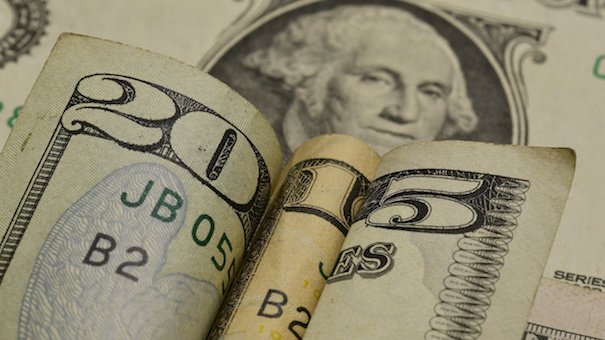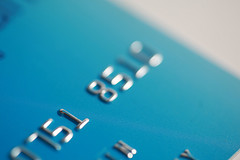 In honor of this month’s Earth Day, here’s a piece that first ran on DailyWorth.
In honor of this month’s Earth Day, here’s a piece that first ran on DailyWorth.
If you’re trying to save money, you’ve heard all the usual advice about ways to cut back: brown bag your lunch, use coupons, shop sales.
But with Earth Day this month, maybe it’s time to take a fresh look at your frugal hacks and see which ones can be updated with the environment in mind. Many times you can save even more with some earth-friendly tweaks.
“Frugal and green lifestyles both mean making specific, informed decisions in order to waste as little as possible,” said frugal hacker Donna Freedman of Surviving and Thriving. “Bonus: Choosing to be frugal can make being green a lot more affordable.”
Old way: Brown bag your lunch.
New way: Reusable bags, wrappings and containers will extend your savings and help save the environment. An investment in an $8 Wrap-N-Mat, for example, will pay for itself in less than a year, assuming you’re spending 4 to 5 cents each for sandwich bags. Or you can just use a napkin or a bandana to wrap that PB&J. You don’t have to buy a special lunch bag, either; any small tote bag will work. Oh, and bring your drink in a Thermos. Bottled water isn’t friendly to the earth or your wallet.
“Bottled water is an environmental nightmare given the petroleum and other resources needed to manufacture and recycle and dispose of all those bottles,” Jeff Yeager, the author of four books on frugal living, including “Don’t Throw That Away! 1,001 Ways to Reuse Your Stuff.” “It’s also a waste of money since tap water is just as good.”
Old way: Make your coffee at home.
New way: Make your coffee sustainably. Still using paper coffee filters? Reuseable ones can be had for $4 to $7—about the same price as a box of 100 paper filters. Did you fall for the single-serve coffee maker fad? The variety’s great, but you’re using a whole lot of plastic pods that probably aren’t even getting recycled. (TreeHugger’s Lloyd Alter called pod coffee a “design for unsustainability.”) You could switch to pods that are mostly biodegradable, or just reserve your fancy coffee maker for special occasions and use a drip or French press version for your daily brew.
The single-serving coffee makers “may still be greener than driving to Starbucks for a cup of Joe, but it really defeats the whole intention of saving money and saving the environment,” Yeager said. (For more tips, watch his video on saving money by going green.
Old way: Shopping for clothes at discount chains.
New way: Buy gently-used clothing at consignment and thrift stores. Katy Wolk-Stanley, who blogs at The Nonconsumer Advocate, joined a “buy nothing new” movement called The Compact in 2007. Since then, she hasn’t bought new clothing other than underwear, bras and socks since 2007.
“Is it easy to only buy used? Yes and no. No, because sometimes a needed item is hard to find used,” said Wolk-Stanley. “However, that built-in lag time between wanting something and tracking down a used version often means that I figure out an alternate solution or simply that it was a momentary impulse and not buy it after all.”
Old way: Buy detergent and other cleaners on sale.
New way: Use a lot less, or make your own. A quarter-cup of laundry detergent is usually enough to clean all but the filthiest loads, while a tablespoon of dishwasher detergent will get your plates clean without overloading your machine with suds. Or make your own: Mary Hunt, author of several books including “Cheaper, Better, Faster!” has been making her own laundry soap for years.
“It’s better than anything I can buy–no perfumes, no dyes or other stuff that causes itching and other skin reactions—and infinitely cheaper,” said Hunt, who runs the Debt-Proof Living site. “Makes me smile to think of all the gallon plastic jugs, bottles, boxes, and other packaging I no longer buy with laundry products in them, to simply haul that fancy packaging to the trash.”
Meanwhile, vinegar and baking soda are two of the most versatile cleaners, and they’re cheap. They can replace most of the store-bought cleaners in your home.
“If you mix vinegar and water in a spray bottle it’ll stand in for Fantastik and other ‘all-purpose’ cleaners,” Freedman said. “You can use a straight vinegar spray if it’s a particularly greasy stovetop, but I use a 50/50 mix and it usually does the trick.”
Old way: Using coupons and sales to stock up on paper towels and napkins.
New way: Ditch paper for cloth. You already have dishtowels, rags and cloth napkins, so put them to use. (If you need to stock up, you can get Tekla dish towels from Ikea for 79 cents apiece.) While you’re at it, ditch those stinky sponges for good old-fashioned dishcloths. I love the Ritz Cotton ones with a scouring side, $8.99 for a five pack. I whip out a new one each day and toss the old one in the hamper. Yes, using cloth creates a bit more laundry, but I haven’t noticed I’m doing any extra loads.
“Buying less and reusing stuff is the way to save money and save the planet,” Yeager said.
Want more? Check out my other columns on DailyWorth.




